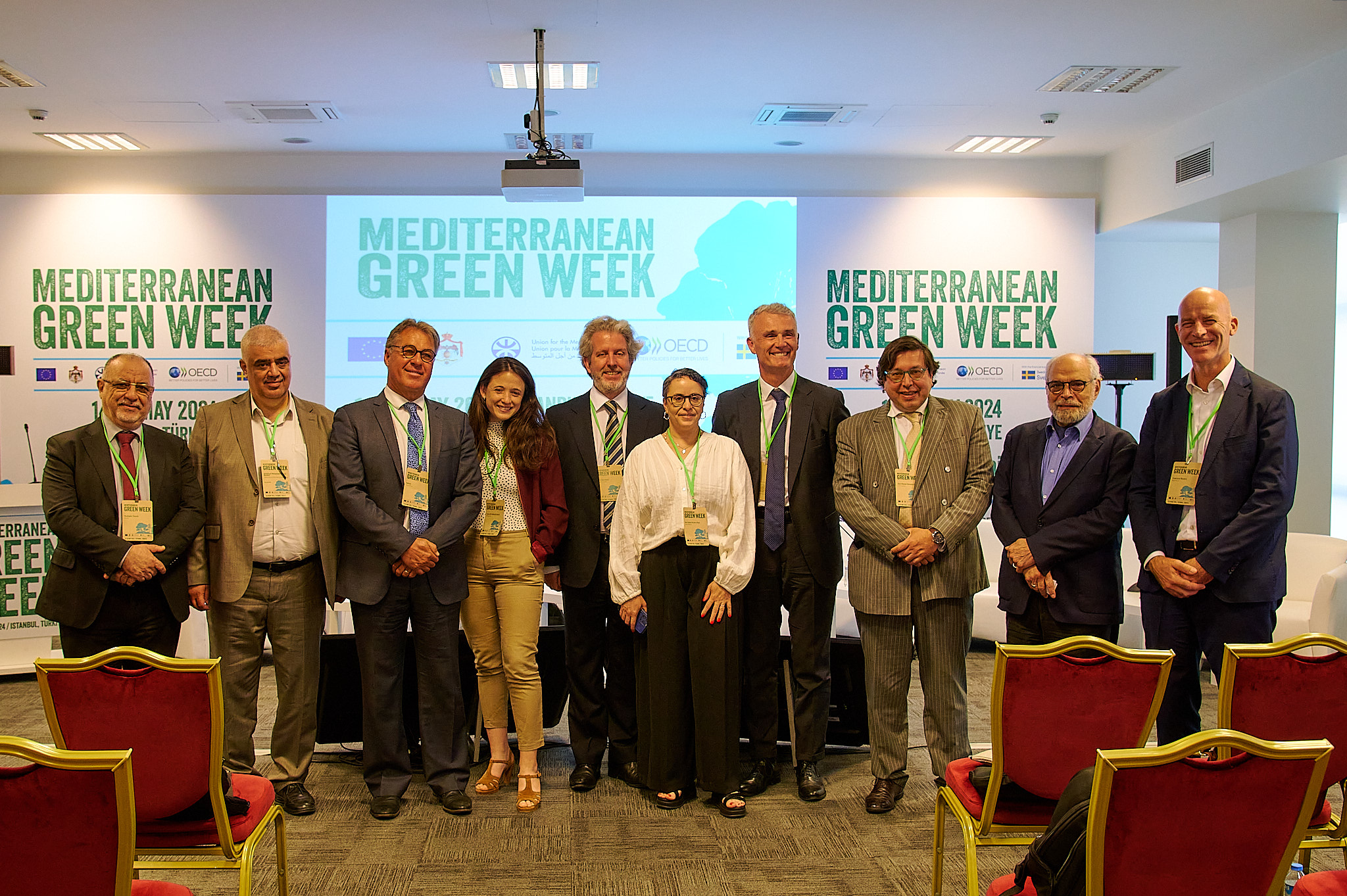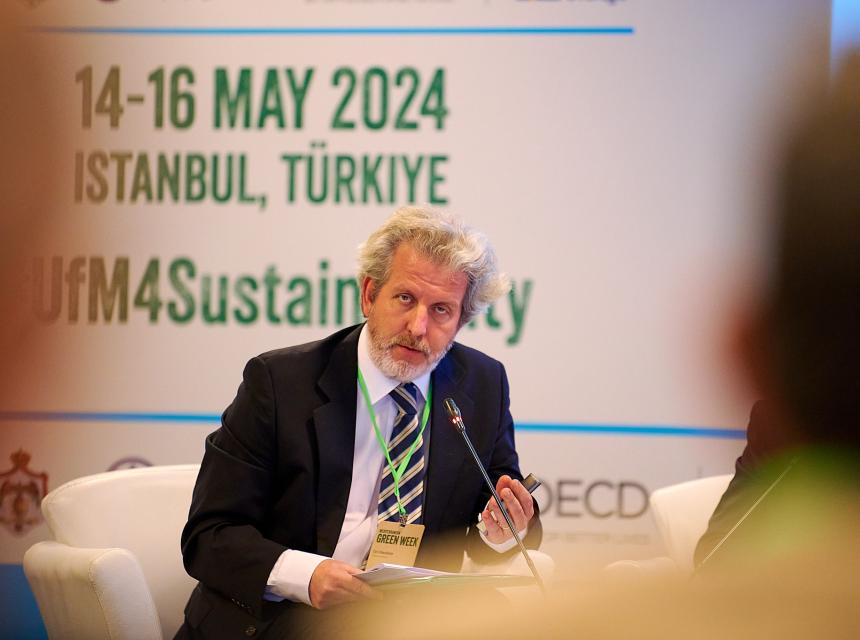The EU & the Green Hydrogen in the Mediterranean: A New Horizon for Cooperation and Investment
Istanbul - At the inaugural Mediterranean Green Week, organised by the Union for the Mediterranean (UfM) and the OECD, the spotlight turned to the transformative potential of green hydrogen in reshaping the energy landscape of the region. Cyril Dewaleyne, Team Leader for Connectivity, Climate Action, and Environment at DG NEAR (European Commission), shared insights on Europe's strategic approach to fostering renewable energy collaboration across the Mediterranean. In an interview with Frank Wouters, MED-GEM’s Director, Dewaleyne detailed the vision and initiatives driving this transition.
As the world grapples with the urgent need to decarbonise, the Mediterranean region stands at a pivotal crossroads. The southern Mediterranean countries, stretching from Morocco to Jordan, possess vast potential for renewable energy development.
There is a huge potential for the massive deployment of renewable energy in the Southern neighbourhood,
Dewaleyne emphasised. This deployment is not only about greening energy mixes but also about bolstering energy security, creating jobs, and developing new value chains within these countries.
The European Union's commitment to this vision is evident through its multifaceted support mechanisms. Dewaleyne's role at DG NEAR involves overseeing initiatives that enhance regional cooperation and connectivity, particularly in energy, digital, and transport sectors. "In Istanbul, we're here to foster synergies and cross-cooperation on energy, climate, and environmental dossiers," he noted, underscoring the collaborative spirit of the UfM Green Week.
🎧 Listen to the Full Interview on MED-GEM's Podcast

The Financial Backbone: Blending and Guarantees
Financial instruments are at the heart of the EU's strategy to catalyse green energy projects. Over the past two decades, traditional grants have paved the way for more sophisticated financial tools. Dewaleyne discussed the evolution from grants to the blending of funds, where a small amount of EU grant money is combined with larger loans from development banks. This approach, which began in 2007, has successfully leveraged significant additional investment into infrastructure projects.
However, as Dewaleyne pointed out, the increasing scale of challenges necessitates even more robust financial frameworks. "Our funds remain limited, and the challenges are increasing," he said. To address this, the EU has developed guarantee instruments aimed at attracting private investment by de-risking projects in sometimes volatile business environments. These guarantees are designed to unlock substantial private sector financing, amplifying the impact of EU funds.
"For the Southern neighbourhood, we commit to cover up to 8.5 billion euros in sovereign loans from the EIB and an additional 1.5 billion euros in guarantees for projects involving private investments," Dewaleyne explained. This strategic financial commitment is expected to mobilise an impressive 6 to 7 billion euros in private investments by 2027, significantly enhancing the scale and scope of regional cooperation.
The MED-GEM Network: Pioneering Green Hydrogen
At the core of the EU's energy strategy in the Mediterranean is the MED-GEM network, an initiative focused on green electricity and hydrogen. Established a year and a half ago, this network aims to bridge the expertise gap between Europe and the southern Mediterranean, accelerating the development of green hydrogen. "Hydrogen has become high on the agenda since 2021, especially in the context of the EU's New Agenda for the Mediterranean," Dewaleyne stated.
The potential for green hydrogen extends beyond local consumption to include exports to Europe, offering a dual benefit of energy sustainability and economic opportunity for Mediterranean countries. With the geopolitical upheavals, such as the war in Ukraine, accelerating the shift towards renewable energy, the MED-GEM network's role becomes even more critical. It serves as a conduit for expertise and collaboration, driving forward projects that could revolutionise the region's energy landscape.
In countries like Morocco and Egypt, the development of green hydrogen is not just a future aspiration but a current priority. Dewaleyne highlighted how the MED-GEM network is working to support these countries in harnessing their renewable energy potential, both for domestic use and for potential export to Europe.
A Future Shaped by Collaboration
The dialogue between Dewaleyne and Frank Wouters at the Mediterranean Green Week underscored a clear message: the future of energy in the Mediterranean hinges on cooperation, innovation, and strategic investment. As Europe and its southern neighbours navigate the complexities of the energy transition, initiatives like the MED-GEM network and the EU's financial instruments will play a crucial role in realising a greener, more sustainable future.
With the Mediterranean's unique position as a bridge between continents and its rich renewable energy resources, the region is poised to become a leader in the global green hydrogen economy. As Dewaleyne aptly put it, the combination of EU support and regional potential creates "a huge opportunity for massive deployment of renewable energy," offering a blueprint for sustainable development and regional cooperation.

